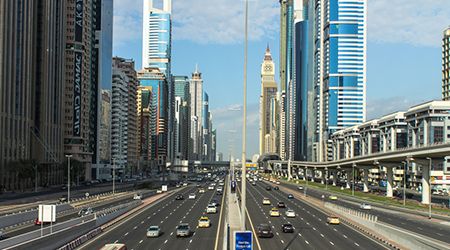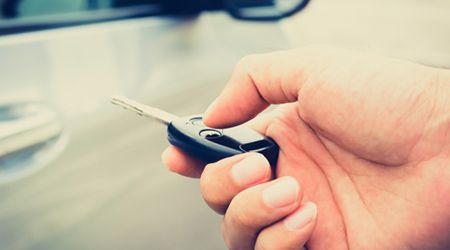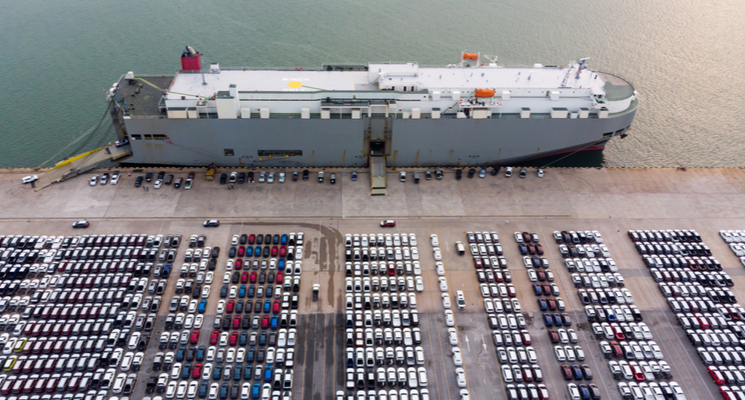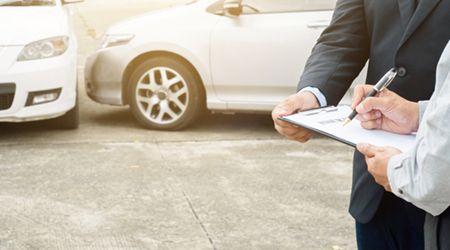Motor insurance is mandatory in the UAE, but all the different terms and options can make it difficult to know which car insurance to choose. ServiceMarket has put together the following article to explain everything that you need to know about car insurance in Dubai!
What is car insurance?
You are legally required to have car insurance to drive in the UAE and will not be able to register your car without it. A car insurance policy is an agreement between you and an insurance company to help protect your financial assets in case of an accident. What the insurance covers depends on the type of car insurance policy you have selected, but at a minimum, it will protect you against ‘third party’ costs as a result of damage, injury or death to others if you cause an accident. Make sure you’re aware of these 6 things before you get your car insured.
Who is covered to drive my car?
In the UAE, car insurance policies typically allow any individual to drive a car, provided that they have a license to drive in the UAE. However, some car insurance policies have restrictions dependent on age, for example, if someone under the age of 25 causes an accident when driving your car, you might be responsible for a percentage of the resulting cost.
What type of car insurance do I need?
There are two types of car insurance: Comprehensive Insurance; and Third Party Liability Insurance. We usually recommend customers select comprehensive insurance, however, what you choose is completely dependent on your requirements and the risk you are willing to take.
Third-Party Liability (TPL): Third Party insurance is usually the cheaper option but it only covers damage caused by you to other cars, people, and property. If your car is damaged in an accident caused by you then you will need to pay for all repair costs.
Comprehensive Insurance: Comprehensive insurance policies offer wider protection and will cover damages to your car even if you are responsible for the accident. It also usually covers damage to your vehicle caused by fire, theft, and vandalism. It is likely that you will be paid faster if you have comprehensive insurance than if you have third-party insurance. This is because comprehensive insurance policies pay out irrespective of whether the accident was your fault or not. They will typically pay for the repair work and then contact the other person’s insurance company to reclaim the money. If you have TPL and you are in an accident that was not your fault, you will need to wait for the other person’s insurance company to agree to pay.
What factors affect the cost?
Multiple factors affect the cost of your insurance, including:
- Your age and driving experience: Policies for people under the age of 25 are usually more expensive.
- Your driving history: If you can get a no-claims certificate to prove that you have not had any recent accidents then you can usually get a discount on your insurance.
- The value of your car: The more your car is worth, the more expensive the policy is likely to be. This is usually because spare parts and repair work are more expensive for higher-value cars. “Fast” cars and cars with high specs will also be more expensive to insure.
- The type of car: The amount you pay for car insurance will also depend on the type of car you own (SUV, Coupe, Sedan, etc.).
- Age of your car: If you have a very old car then you are likely to have to pay more for your insurance, as it is more likely that the car will have issues. Many insurance companies will not offer comprehensive insurance for cars older than 10 years.
- Policy inclusions: Add-ons such as a replacement car or agency repair usually increase the cost of your insurance.
What is policy excess?
The policy excess is the amount that you will need to pay towards any claim. If you have a policy excess of 500 Dhs, you will need to pay the first 500 Dhs towards any claim you make. It is possible to reduce the cost of your insurance by increasing the policy excess. On the ServiceMarket system, you can select a voluntary excess and some insurers will quote a lower price accordingly.
What is a no-claims discount?
Insurance companies give “no claims” discounts to people who can provide a no-claims certificate to prove that they have not made any insurance claims within a set period. If you have been a safe driver, and have not been in any recent accidents, you can request your insurance company to provide you with a no-claims certificate that you can use to get a discount on your car insurance. Also, having a no-claims certificate often allows you to opt for agency repair on an older car, which is not usually possible.
What do you need to do to make a claim?
If you are involved in an accident, you will need a police report to make a claim. As well as the original police report you will need a copy of your vehicle’s registration card and your driving license. You should call the insurance company and inform them of the accident and they will then advise you on the steps you need to take. Your insurance provider’s contact details should be on your policy documentation – we recommend keeping a copy of the policy in your car at all times.
What is agency repair?
Agency repair usually increases the cost of your insurance. It means that if your car is damaged in an accident then all repairs will be done by the official car dealer. If you do not opt for this option then your car will be repaired by a garage chosen by the insurance provider. Many insurance providers will not offer the agency repair option to people who have older cars. Many insurers do not provide agency repair for cars older than 2 years.
What is a hire car?
This is another add-on that usually increases the insurance price but will make your life much easier while your car is being repaired after an accident or breakdown. If you have this cover, then your insurance provider will pay for you to have a replacement “hire car” during this time. Insurance policies usually have a limit to the number of days for which you are provided with a courtesy car so make sure to read the terms carefully.
What is roadside assistance?
If your policy includes roadside assistance then if your car breaks down, the insurance provider will send someone to your location to help you out or take your car to get repaired.
What if I want to drive off-road?
If you have a 4×4 vehicle then you might want to drive off-road in the desert or mountains. However, in this case, you will need to select an insurance policy that covers you for off-road driving. Most policies will not cover you if you damage your car when driving off-road so make sure that you add this cover.
How do I insure my car to drive within the GCC?
If you are planning to travel across GCC borders then you will need to make sure that your insurance is extended to other GCC countries. You will not be able to enter countries like Oman without this GCC cover.
What about my personal belongings?
Many people are not aware that personal belongings, such as mobile phones, may also be covered by your car insurance if they are damaged in a road accident. This depends on the insurance policy and there are specific limits to the cover.
What insurance companies are in the UAE?
There are many insurance companies in the UAE. The most common ones include Oman Insurance, Union Insurance, AIG, AXA, RSA, Qatar Insurance, ADNIC, Dar Al Takaful, Watania, Arabia Insurance, Salama, Emirates Insurance Company, Al Buhaira Insurance, Al Wathba Insurance, Aman and Dubai Insurance Company.
Is it possible to get multicar discounts?
If you own and personally drive more than one car then you may be eligible for a multi-car discount. This is usually decided on a case-to-case basis with the insurance provider.
Do car insurance policies cover natural disasters such as floods?
This is dependent on your policy and the insurance provider. Read the fine print on your policy to be sure of what natural disasters you are covered for.
How long are car insurance policies valid for?
In the UAE you need to re-register your car every year but RTA offers a one-month grace period. To cover this grace period UAE insurance policies are usually valid for 13 months.
What documents will I need to purchase car insurance on ServiceMarket?
You will need to fill in your personal details as well as details of your car. You will need to provide us with a copy of:
- Your Driving License
- Your Emirates ID card
- Your Vehicle Registration Card (mulkiya) or alternatively the dealer quotation or transfer of ownership document
- A no-claims certificate if you want to get a no-claims discount
Note that if your car has a gap in the insurance, there are additional documents that will be required such as a passing paper or a self-declaration form.
What if I’m moving to a new area in Dubai?
If you’re relocating within Dubai, it’s important to update your car insurance provider with your new address. Some insurers consider location when calculating your premium, as certain areas may have higher rates of accidents or theft. Additionally, if you’re hiring a professional moving company, be sure to check if they offer transit insurance for your belongings during the move. While this doesn’t directly impact your car insurance, many Dubai residents find it convenient to handle both moving and vehicle-related insurance through platforms like ServiceMarket, which also allows you to compare local movers based on price, ratings, and services.







